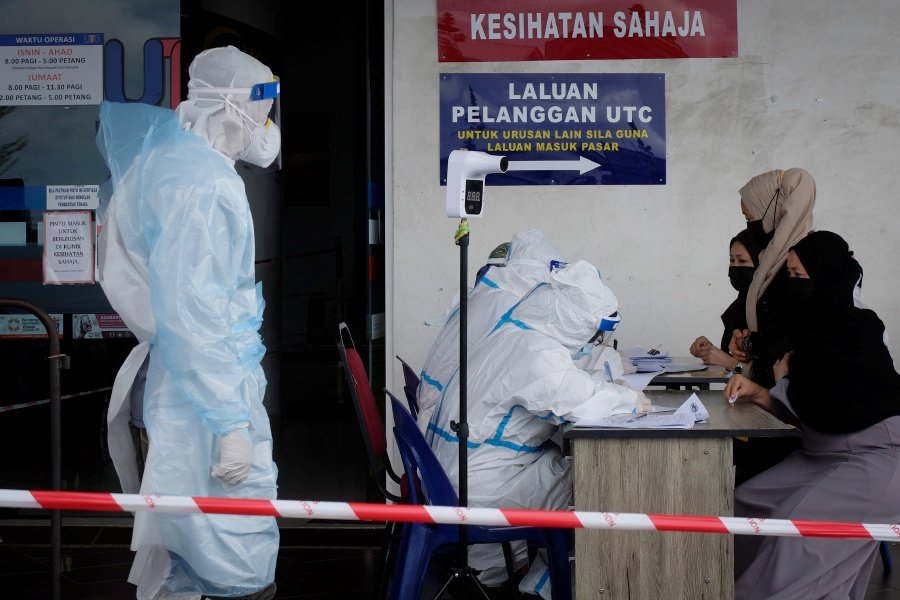'We need Covid-19 advisory panel'

By Tharanya Arumugam
January 11, 2021 @ 9:50am
KUALA LUMPUR: Malaysia urgently needs to form an independent Covid-19 Advisory Committee to plug the gaps in virus detection, prevention and care, as the pandemic enters its second year with no signs of abating.
Health experts cautioned that this year could present new challenges and changes, which would require complex and coordinated multisectoral, transdisciplinary action to improve the country's Covid-19 response.
Drawing parallels with advisory committees established in the United States and New Zealand, the experts said such a panel of local experts was crucial to aid the authorities in coming up with clear, holistic and effective mitigation measures.
Epidemiologist and biostatistician Associate Professor Dr Malina Osman said setting up an advisory committee would be a positive development in pandemic management.
She said it could address blind spots of current strategies, provide specific advice in specific situations, empower the community, show transparency in the government's approach to tackling the virus, offer wider options of the relevant data analysis and improve the trust deficit.
"The committee can provide valuable information and feedback to enhance outbreak management, offer suggestions and allow the relevant data to be analysed timely.
"Proper and specific platforms for the discussion should be arranged with the specific objectives and related performance indicators," she told the New Straits Times.
She said the committee should be made up of strong-minded local public health experts from academia, ministries and/or former Health Ministry personnel.
She said those in the National Pharmaceutical Regulatory Agency, physicians and surgeons who served as frontliners (including those in the private sector), occupational safety and health experts, infectious diseases researchers, mathematicians, statisticians and data modelling experts should be roped in.
"There is a need to have relevant stakeholders share their distinct views consistently and continuously in the country's battle against Covid-19.
"Currently, the Health Ministry, through specific platforms and meetings, invites experts to share their views, but sharing is limited to the discussion duration and is usually done ad hoc."
Universiti Selangor visiting professor of environmental health Professor Dr Jamal Hisham Hashim said more could be done in pandemic assessment and control.
"The main clusters are the Sri Petaling tabligh, Sabah election, prison and workplace clusters. Only the Sri Petaling cluster has been well resolved.
"The other clusters from prisons and workplaces are still highly challenging.
"We have not come up with an effective strategy to prevent future outbursts from similar clusters."
He said data gathered on the Covid-19 risk assessment, management and communication had shown that the two main contributors to the public's exposure to the virus were environment and behaviour, so these two aspects should be beefed up.
"There are some aspects of the pandemic control that are beyond the Health Ministry's scope.
"Two of these are prisons and workplaces, which come under the Prison Department and Human Resources Ministry, respectively.
"An advisory committee would help us put together a multi-pronged approach in assessing and strategising our targeted approach towards Covid-19 control."
Melaka Manipal Medical College's Community and Occupational Medicine Professor Dr G. Jayakumar said the special committee should complement the Health Ministry, especially in addressing issues particular to different states.
"We need to recognise that the Health Ministry has been successful in handling the pandemic, but fatigue can set in and affect the medical officials, especially the frontliners.
"An independent committee will contribute to controlling the further spread of Covid-19 by understanding and working holistically with relevant agencies and ministries."
He said the committee would need leadership from and collaboration between national and state public health leaders, academicians, public health physicians from professional bodies like the Malaysian Medical Association and Academy of Medicine Malaysia, as well as other experts.
Malaysian Public Health Physicians Association president Datuk Dr Zainal Ariffin Omar said the association was keen to be part of the advisory committee should the government agree to its formation.
